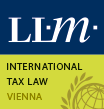Richard Stern
Richard Stern has worked advising governments on taxation issues for 20 years. He currently leads EY’s Tax Administration and Reform Services, a part of EY’s Global Tax Policy Group since October 2017. Before EY, Richard was Lead Tax Specialist for the World Bank Group’s Global Tax Team, as well as running the World Bank Group’s International tax and Tax Transparency Initiative from 2003-2017. Richard was an economist at the International Monetary Fund for 8 years, working monetary and fiscal issues. He has taught at the Tax and Law Faculty, at WU (Vienna University of Economics and Business) since 2013.Courses:
Trends in Global Taxation
The course endeavors to bridge the gap between theory and policy and to link up domestic and international tax considerations. The issues discussed are those which are currently on the agenda of international bodies such as the OECD, the G20 and the EU. The approach is comparative and draws upon the different approaches being followed by governments around the globe. Discussion focuses on four related issues. The first is to identify the general trends in tax reforms: Why have countries adopted different approaches and what is the trade-off between achieving efficient, fair, and simple tax systems? The second theme examines the impact of new players (new countries, new types of MNEs, and new organizations) on the existing international rules of the game in the tax area. The third theme looks at what is meant by a competitive tax environment and how countries are trying to achieve such an environment, both from a policy and administrative perspective. The last theme examines how the new emphasis on tax transparency is influencing the behavior of governments and taxpayers and what policy options are currently being explored by governments to improve international cooperation to counter offshore non-compliance. The aim is to prepare students to be in a position to contribute to the ongoing debate on the role of tax systems in achieving sustainable and inclusive growth patterns, raising the revenues that governments need to finance the services demanded by their citizens and doing this in a way which achieves a fair sharing of the tax burden.
Master thesis 2026/2027 full-time program - general topic: International Tax Governance
This introductory lecture will deal with the role of various international bodies in international tax governance focusing on the OECD/G20 Inclusive Framework on BEPS and the United Nations (UN), their agenda and standard setting, decision-making processes, the representation of different group of countries within these bodies and their ability to effectively pursue their interests in global tax negotiations. We will look at the legitimacy of these bodies and their decision-making processes as well as the legitimacy of the output of their work in international tax coordination. Special focus will be put on the quest of non-OECD countries to make the United Nations the leading organizations in international tax cooperation. The UN’s work on the Framework Convention on International Tax Cooperation will be examined both from a political governance and legal point of view. Overall, the lecture aims at providing students with a solid fundament to be able to critically examine the prevailing power dynamics in international tax governance and the fairness of the international tax architecture from a procedural and substantive point of view.
Back to list

